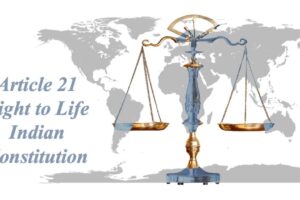
Dispersal of Unlawful Assembly by Civil Force: A Comprehensive Analysis
Introduction:
The maintenance of law and order is a cornerstone of any democratic society. To ensure the safety and well-being of its citizens, governments worldwide have established legal frameworks and procedures to deal with unlawful assemblies. In India, the Criminal Procedure Code (CrPC) provides provisions for the dispersal of unlawful assemblies by civil force. This article aims to delve into the details of these provisions, their significance, and the safeguards in place to protect the rights of the individuals involved.
Understanding Unlawful Assembly:
Before delving into the provisions under CrPC, it is crucial to understand what constitutes an unlawful assembly. According to Section 141 of the Indian Penal Code (IPC), an assembly of five or more persons becomes unlawful when their common object is to commit an offense or to enforce any right or supposed right by means of criminal force, or show of criminal force, against the will of a person.
Provisions under CrPC for Dispersal of Unlawful Assembly:
Section 129 of the CrPC empowers a police officer, in command of a police force, to disperse an unlawful assembly by using civil force. The section outlines the procedures and limitations that must be followed during such dispersals.
Announcement and Warning: Before resorting to civil force, the police officer must issue a clear warning to the assembly, specifying the unlawful nature of the assembly and directing the participants to disperse peacefully. This announcement ensures that individuals have an opportunity to comply with the law before any force is applied.
Use of Minimum Force: The use of civil force must be proportionate to the situation at hand. Law enforcement officers are expected to use minimum force necessary to disperse the assembly. This principle safeguards against excessive use of force and protects the rights and safety of the individuals involved.
Avoidance of Lethal Weapons: The use of lethal weapons is strictly prohibited unless there is an imminent threat to the lives of the police officers or others present at the scene. This limitation ensures that dispersals are conducted with the utmost regard for human life and dignity.
Recording of Action: Any dispersal of an unlawful assembly using civil force must be recorded in writing, detailing the circumstances that necessitated such action. This documentation serves as a legal record and can be used for accountability and transparency purposes.
Safeguards and Protections:
While the CrPC grants powers to law enforcement agencies to disperse unlawful assemblies, several safeguards are in place to protect the rights of the individuals involved.
Right to Peaceful Assembly: The Indian Constitution guarantees the right to peaceful assembly under Article 19(1)(b). Authorities must respect this fundamental right and ensure that dispersals are only carried out in cases of unlawful assemblies that pose a threat to public order.
Accountability and Oversight: Law enforcement agencies are subject to oversight by higher authorities and independent bodies. Instances of alleged excessive use of force or abuse of power are thoroughly investigated, and officers found guilty of misconduct are held accountable through legal processes.
Legal Recourse: Individuals affected by the dispersal of an assembly have the right to seek legal recourse. They can file complaints against law enforcement officers involved in the dispersal and seek compensation for any damages suffered during the process.
Conclusion:
The provisions for the dispersal of unlawful assemblies by civil force under CrPC are essential for maintaining law and order in society. However, it is crucial for law enforcement agencies to exercise these powers judiciously, respecting the rights and dignity of the individuals involved. The adherence to legal procedures, issuance of warnings, use of minimum force, and strict oversight mechanisms ensure that the dispersal of unlawful assemblies is carried out within the bounds of law and justice, upholding the democratic principles of the nation.



